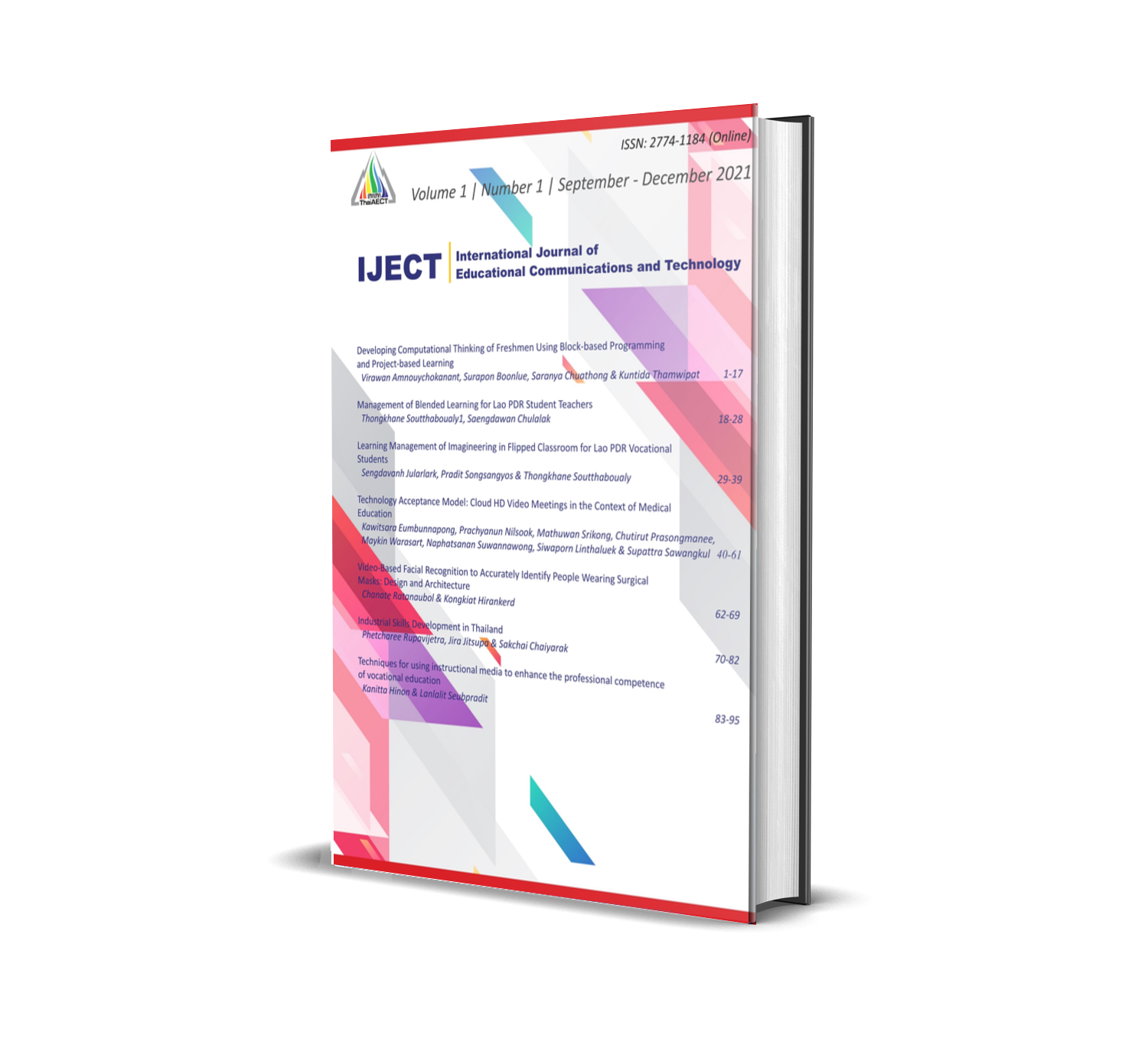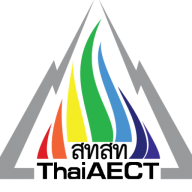Confirmatory Factor Analysis of Students’ Motivation Towards Massive Open Online Course Scale
Keywords:
Massive Open Online Course, Self-regulated Online learning, Confirmatory Factor Analysis,Abstract
The objective of this research is to use confirmatory factor analysis in the LISEL program to verify the factor structure of a collection of observed variables and to eliminate a few points in the assessment of the behavior factors that are irrelevant, and confirm the data with the model fit. The study includes two sample groups. In phase one, we used the original self-regulated online learning form with 42 questions and ran confirmatory factor analysis on the data from the group sample size of 1,999 participants on the LISREL application that generates a modified self-regulated online learning form that includes only 31 questions. In phase two, we use a modified self-regulate form as a survey and collect the data from a sample size of 10,000 participants. Model fit and survey results were closely matched, which suggests that learners have good self-regulation for online learning.
References
Aljaraideh, Y. (2019). Massive Open Online Learning (MOOC) benefits and challenges: A case study in Jordanian context. International Journal of Instruction, 65 - 78. https://doi.org/10.29333/iji.2019.1245a
Buhl, M., & Andreasen, L. (2018). Learning potentials and educational challenges of massive open online courses (MOOCs) in lifelong learning. International Review of Education, 151-160. https://doi.org/10.1007/s11159-018-9716-z
Chaker, R. Impedovo, M. (2021). The moderating effect of social capital on co-regulated learning for MOOC achievement. Education and Information Technologies, 899-914, https://doi.org/10.1007/s10639-020-10293-2
Dhawal, S. (2021). Analysis by the Numbers: MOOCs in 2021. Class Central. https://classcentral.com/report/mooc-stats-2021.
Hong, J. Lee, Y. Ye, J. (2021). Procrastination predicts online self-regulated learning and online learning ineffectiveness during the coronavirus lockdown. Personality and Individual Differences, 1-6, https://doi.org/10.1016/j.paid.2021.110673
Ingkavara, T. Panjaburee, P. Srisawasdi, N. Sajjapanroj, S. (2022). The use of a personalized learning approach to implementing self-regulated online learning. Computers and Education: Artificial Intelligence, 1-11, https://doi.org/10.1016/j.caeai.2022.100086
Jansen, R. Van Leeuwen, A. Janssen, J. Kester, L. Kalz, M. (2017). Validation of the self-regulated online learning questionnaire. Journal of Computing in Higher Education, 29, 6–27. https://doi.org/10.1007/s12528-016-9125-x
Laura, P. (2012). “The Year of the MOOC,” The New York Times, https://www.nytimes.com/2012/11/04/education/edlife/massive-open-online-courses-are-multiplying-at-a-rapid-pace.html
Leonardo, C. (2019). Designing a Self-regulated Online Learning Course Using Innovative Methods: A Case Study. International Conference in Methodologies and intelligent Systems for Technology Enhanced Learning, 121-128. https://doi.org/10.1007/978-3-030-23990-9_15
Liang-Yi, C. (2015). Exploring the Effectiveness of Self-Regulated Learning in Massive Open Online Courses on Non-Native English Speakers. Title: International Journal of Distance Education Technologies (IJDET), 13(3), 61-73. https://doi.org/10.4018/ijdet.2015070105
Nesterowicz, K. Bayramova, U. Fereshtehnejad, S. Scarlat A. Ash, A. Augustyn, A. Szádeczky, T. (2022). Gamification Increases Completion Rates in Massive Open Online Courses. International Journal of Information and Communication Technology Education, 18(1), 1-10. https://orcid.org/0000-0001-5384-8206
Pomerol, J. Epelboin, Y. Thoury, C. (2015). What is a MOOC?. ISTE Ltd., London UK, 2015, 5-16.
Salinee, J. (2015). Self-Regulated Learning strategies of 21st century1. Journal of Behavioral Science for Development, 15-26.
Serhat, K. (2018). Massive open online courses (MOOCs) & Definitions. https://educationaltechnology.net/massive-open-online-courses-moocs-definitions.
Sillak-Riesinger, B. (2016). The Potential of Massive Open Online Courses in the Context of Corporate Training and Development. Springer Gabler. Wiesbaden, Germany, pp. 1.
Thailand Cyber University. (2023). Report in Thailand Massive Open Online Course: Thai MOOC. https://thaicyberu.go.th/
Timothy, A. B. (2020). Confirmatory Factor Analysis for Applied Research: Second Edition. The Guilford Press, New York, 1-3
Zalli, M. Nordin, H. Hashim, R. (2020). Online self-regulated learning strategies in MOOCs: A measurement model. International Journal of Emerging Technologies in Learning, 15, 255-263, https://doi.org/10.3991/ijet.v15i08.12401
Downloads
Published
How to Cite
Issue
Section
License
Copyright (c) 2023 International Journal of Educational Communications and Technology

This work is licensed under a Creative Commons Attribution-NonCommercial-NoDerivatives 4.0 International License.







